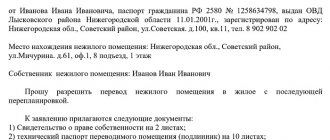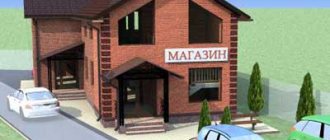- Home >
- Useful >
- Insurance companies >
- Types of property insurance for individuals
One of the most common types of insurance protection is property insurance, and this is no coincidence. Protection of real estate, vehicles and other types of tangible property allows policyholders to be confident that in the event of loss or damage to their valuables, they will be able to receive adequate compensation from the insurer. To know which policy you need to take out, you need to study the types of property insurance. They are divided into 2 large categories: protection of property of companies and individuals (individuals). Those who want to protect their private property and personal transport should pay attention to the types of property insurance for individuals.
Property insurance contract
A property insurance contract is concluded between the owner and the insurance company. Before signing a contract, an assessment of the value of the insurance object is usually made. The insured amount cannot be more than the actual value of the object at the time of signing the contract. The term of the contract is from one year or more with annual recalculation of the value of the property and the amount of payments. Individuals and legal entities can insure the full or partial value of the object. It is possible to insure the same property with different insurers. The total amount of compensation in this case should not exceed the cost of the object.
How does emergency insurance work in the regions?
The law on voluntary emergency housing insurance came into effect in August 2021. It was launched in 14 pilot regions of the country: in St. Petersburg, Leningrad, Moscow, Novosibirsk, Omsk, Sverdlovsk, Tver, Tyumen, Belgorod regions, as well as in Transbaikal, Krasnodar, Krasnoyarsk, Perm and Khabarovsk territories.
Regional programs began operating in 2021 and are mainly created on the basis of the capital’s experience - a line about insurance will be added to the receipt along with utility bills. If the owner pays the amount of the insurance premium, it means that he agrees with the proposal for home protection, and his apartment or house will be insured.
Now, during emergencies, the state helps all victims. For example, in November 2021, when several districts in the Novgorod region were flooded, the affected 700 families were paid 10,000 rubles from the regional budget at a time. To cover damage to property, they will also be given up to 100,000 rubles from the region’s reserve fund.
Of course, for this amount it will not be possible to replace all the wet furniture, household appliances, damaged things, floating firewood and supplies and make repairs in the house. In some settlements, the water stood at the level of the windows of residential buildings for 1–2 weeks, and it is impossible to cover the losses from this natural disaster with such meager compensation from the budget. Compensation for damage if you have a policy from an insurance company can be 3–5 times more. But not everyone has such a policy.
Therefore, it is proposed to introduce practically compulsory home insurance, so that in addition to the authorities, insurance companies would also cover damage from emergencies. If the victims do not have insurance, then they will be able to count on only the most minimal compensation from the authorities - 10,000–30,000 rubles each. And if you have insurance, you can receive up to 100,000–500,000 rubles.
The government plans to distribute the financial burden during emergencies between insurance companies and the regional budget. As a result, residents whose housing will be damaged due to the rampant nature will be able to receive more than they should now. They will also add “urban risks” to the insurance: gas explosion, flooding by neighbors, fire. But everything depends on the specific region - insurance conditions are set by local authorities.
In addition to this regional home insurance, there are other options to protect your square footage. Voluntary home insurance programs include expanded options, increased payment limits and help in various situations.
Do I need to buy both policies or will regional insurance be enough?
There are quite a lot of property insurance products on the market now. One of the differences between them is the scope of coverage, namely the list of risks included in the policy.
As a rule, insurance companies offer to insure real estate against the following risks: fire, explosion, flood, natural disasters, illegal actions of third parties, falling objects, etc. Apartment owners can additionally choose civil liability insurance.
As for regional programs implemented in accordance with the law, the list of risks in them may differ depending on:
- the territory’s exposure to risks, the composition and relationship of objects in the region (houses, apartments, their condition, etc.),
- the region's ability to additionally finance compensation for damage from risks not related to emergency situations.
Until recently, there were a number of assumptions about the cost of emergency insurance - from 300 to 1000 or more rubles per year. However, so far there are not all the necessary factors that would allow us to name any specific figure, as well as judge the sufficiency of coverage. Much, as stated above, will depend on the conditions of regional programs.
Property insurance for legal entities
The legislation provides for norms of compulsory and voluntary insurance of property of legal entities. State-owned property, high-risk objects, collateral values, and vehicles purchased on credit or under a leasing agreement are subject to compulsory insurance. An insurance contract can be drawn up both for the entire property of the complex and for its individual parts. Compensation for damage to a legal entity is paid only if the company is not at fault for the occurrence of the insured event. The existence of an insured event must be documented.
Property insurance for individuals
Mandatory insurance of property of individuals is not provided for by law, but often the conclusion of such an agreement is a mandatory requirement of banks when issuing mortgages and loans for the purchase of vehicles. According to statistics, only 3% of individuals in the Russian Federation insure their own property. In Europe and the USA, 90% of property owners enter into property insurance contracts. Insurance payments cover the full cost of lost or part of the cost of damaged material assets. The maximum payment amount depends on the appraised value of the property, limits, deductible and other factors.
Mandatory civil property insurance policies
- In some cases, insuring the property of individuals is a necessity. An example is collateral insurance when purchasing real estate with a mortgage. This is one of the most common types of property insurance protection, which involves issuing a policy for the period of payment under the loan agreement. Until the mortgage is repaid, the insurer protects the property interests of the owner, and the beneficiary under the policy is the lender (the bank that issued the mortgage).
- OSAGO for car owners. Another type of property (movable) protection, which no vehicle owner can do without. OSAGO protects the interests of persons who drive a vehicle on the territory of the Russian Federation.
- CASCO when purchasing a car under a car loan agreement. In a number of situations, CASCO is required, especially when it comes to purchasing a car in installments or on credit from a car dealership or a partner bank.
Any of the listed property insurance for citizens becomes mandatory only upon the occurrence of certain circumstances, for example, the purchase of a home with a mortgage, which is the factor causing the need for this policy.
Voluntary property insurance
Voluntary property insurance involves concluding an agreement with the insurer at the initiative of the company that owns the property. Legislative acts regulating this type of insurance are the Laws of the Russian Federation “On Insurance” dated November 27, 1992, “On the Organization of Insurance Business in the Russian Federation” dated December 10, 2013. For organizations, expenses for voluntary insurance, in accordance with the legislation of the Russian Federation, are included in expenses associated with production and sales, as other expenses. Voluntary property insurance is always limited in terms of the terms of the contract.
Main types of real estate insurance
Title Insurance
The product will protect you from loss of ownership of the purchased property if, when selling a house or apartment, the seller intentionally hides or does not take into account the interests of minors, heirs or relatives serving sentences in MLS, and the buyer does not know about it. There are often cases when a transaction is made by an incapacitated citizen. If the interested party goes to court, the buyer will be left without housing, since the court will recognize the transaction as invalid, and it will take a very long time to get his money back.
When issuing a policy, insurance company employees check the legal purity of the insurance object, which helps to timely identify problem real estate.
This type of insurance is part of comprehensive mortgage insurance. If you cancel the policy, the bank will increase the mortgage rate (by 1-2%) or refuse to issue a loan.
The average tariff is 0.25-0.5% of the value of the property/loan amount and is set individually.
If an insured event occurs (a court decision declaring the transaction invalid), the insurance company pays compensation to the bank that issued the loan or to the buyer who insured the property for the full value. The insurance is valid for up to 3 years (if necessary, the contract can be extended).
Property insurance against loss (partial or complete destruction of the building)
If the house was damaged by an emergency or natural disaster, insurance will protect against financial losses. Such a policy is required by banks when lending against real estate.
In Russia, since August 4, 2019, there has been a law regulating the procedure for insuring housing against emergencies. The minimum insurance amount is 500,000 rubles, and in each region local authorities have the right to increase it. Insurance payments - about 300 rubles. per year (depending on the apartment and risks). Those affected by emergencies receive new houses from regional authorities or compensation payments from the insurance company, based on the average market cost per square meter in the region. Expanded programs also include household risks in the policy - flooding, gas explosion. And the Ministry of Finance proposes to introduce tax breaks on insured property and contributions for its major repairs.
Repair insurance
This type of insurance will cover costs associated with damage to the interior decoration of the premises. Damage may result from the actions of strangers or everyday or natural phenomena.
The tariff depends on the location of the premises and ranges from 0.1 to 6% of the insured amount per year. For example, if an apartment on the ground floor of an old building has not been renovated for a long time, the cost of the policy will be 20-30% more than for an apartment in a new building.
Civil liability insurance for apartment use
If your neighboring apartment is damaged, the insurance company will compensate for financial losses. For example, the washing machine leaked and water flooded the lower floors. The insurance company pays compensation if the event is the real fault of the insured person, recognized by the court.
Liability insurance is worthwhile if your home is occupied by tenants or neighbors have made expensive repairs, and you have problems with pipes or other utilities.
Mortgage insurance
A mortgage is designed for several decades and is associated with various risks; therefore, when lending, banks require insuring not only the subject of the mortgage, but also the life and health of the borrower. Insurance financially protects both the lender and the borrower - if an insured event occurs (loss of property, death of the debtor or loss of ability to work), the insurance company will direct the compensation to repay the mortgage loan.
The price of insurance depends on the loan amount - as the amount and interest are paid, the amount of the insurance premium decreases. The agreement is concluded for the entire loan repayment period, until the mortgage debt is fully repaid.
Insurance of construction and installation risks (CMR)
Insurance subjects are construction companies. Objects:
- construction and temporary structures;
- equipment, special equipment, building materials;
- installation work;
- civil liability (if third parties or their property are damaged);
- business risk (in terms of lost income);
- warranty obligations.
Tariffs are determined individually, based on the results of studying the object, its estimated cost and possible risks. The price of the policy depends on:
- complexity of the facility under construction;
- its purpose;
- insurance period;
- volume of insurance coverage;
- insurance period;
- security of the facility (security, fire extinguishing systems and other risk factors).
The insurer undertakes, upon the occurrence of an insured event, to compensate the policyholder or other person (beneficiary) for losses in the amount of the insured amount.
The contract is concluded for a period equal to the construction period. Insurance territory is a construction site where the policyholder’s property is located.
Compulsory property insurance
Compulsory property insurance is provided for by the legislation of the Russian Federation for legal entities. It provides for legal protection of state, personal, leasing, collateral, and rental property. Compensation for damage is provided for the entire property complex or its individual parts. The insurance contract includes a standard list of risks, which in some cases may be supplemented. The conditions for property insurance are established in the Insurance Rules registered with government agencies. The contract should always cover the following issues:
- insurance liability;
- insurance valuation and amounts;
- rules and procedures for compensation.
How to insure commercial property: pitfalls and expert advice
Commercial property insurance requires significant preparation and attention to detail. Let's talk about the difficulties that you may encounter in the process and solutions.
Insurance of offices, warehouses, industrial and commercial premises mainly concerns three groups of risks. First of all, this is the occurrence of typical unforeseen events (fire, explosion, flooding, natural disaster, etc.). It is worth noting that among all the listed cases, the most common is fire, and therefore almost one hundred percent of contracts include such a risk as “loss and damage to property as a result of fire.”
Also, commercial real estate is insured against losses arising due to the forced stoppage of the organization’s activities. This is a measure that companies resort to in cases where it is impossible to ensure their further functioning - for example, due to technical, organizational or other reasons. Before the current pandemic, not all insurance contracts included such coverage, but now we can expect that such a requirement from clients will become quite common. At the same time, it is not a fact that the Russian insurance market is ready to cover such risks in the foreseeable future.
Finally, commercial real estate is insured against civil liability for damage caused to third parties. The object of insurance in such cases is the property interests of the policyholder associated with the risk of liability for causing physical and/or property damage. Such insurance is especially relevant for owners of hazardous facilities, for example, during the operation of facilities using nuclear energy, as well as during construction and installation work at facilities.
When insuring commercial real estate, there may be cases of fraud or dishonesty on the part of policyholders. For example, in our practice there was an example related to insuring a shopping center in Perm against catastrophic events associated with natural hazards. The amount of compensation was about 200 million rubles. The claim was filed by the owner of the shopping center due to the fact that the integrity of the building’s load-bearing structure was violated. A loss and the need to completely rebuild the building were stated. However, as we found out, the destruction of the shopping center was not associated with natural phenomena such as an earthquake or flood, but with the fact that construction work was carried out nearby, that is, there was a human factor. The insurer argued that this risk was not insured, since man-made causes of damage to the building were excluded.
Another example involved a fire in a medical equipment warehouse. The insurer and experts were misled regarding the premises in which the insured event occurred. The warehouses were located in an industrial area and the description said that the fire occurred in the sixth building, although in fact it occurred in the eighth. We were able to prove the fact of the insured's dishonesty only in the arbitration court, after all the inspections had been completed. First, we managed to change the wording in the decision to refuse to initiate criminal proceedings. By this we were able to prove that the property was located in another place, which was not the place of insurance, and therefore the insurer was not obliged to compensate for the damage.
There are borderline cases when a property is registered in the name of a citizen, but is actually used by him for business activities. Disputes in such cases can be difficult both due to the subject composition and due to the fact that they end up for trial in courts of general jurisdiction, before judges who sometimes do not have sufficient competence to make an objective decision. In such cases, it is very difficult for insurers to prove circumstances that confirm the client’s bad faith.
To avoid such scenarios, there are a few important things to keep in mind. Let me formulate them briefly:
1. Even before concluding a contract, carry out a set of checks regarding the object
This may include engineering examinations, assessment of the object to determine its value, verification of documents and history. It is extremely important for the insurer to obtain information about the procedure and system of warehouse accounting of goods if objects located on the premises are insured.
2. Be careful when concluding an insurance contract
This point seems quite obvious, but problems appear already at this stage. Despite the fact that making adjustments to the contract at the request of the policyholder is a normal and even desirable practice, the insurer also has licensing restrictions, according to which it may not include some risks in the contract.
3. Establish all the reasons for the occurrence of the insured event
In the event of an insured event, standard examinations of the insurance object may not be enough. We need an integrated approach that includes working with law enforcement officers, establishing all the circumstances and causes of the event.
4. Active work in court
The court often sides with the insured, as a result of which the insurer has to fight and prove its position. This is necessary - especially if there is suspicion of fraud or misrepresentation.
Of course, at each of these stages, the comprehensive work of all legal services of the company is important. If it is impossible to ensure such work, it is worth turning to third-party legal organizations, and here it is extremely important not to miss the moment when, for example, it will be impossible to establish the exact causes of the insured event. Coordination of actions, attentiveness before and after the occurrence of an insured event and a well-drafted contract are what will make it possible to cope with problematic situations even in the case of their apparent complexity.
Cost of property insurance
The cost of property insurance is determined by an agreement concluded between the insurer and the policyholder. It depends on several factors: the estimated value of material assets, the degree of their wear and tear, the list of risks, the amount of compensation, the amount of the deductible. The approximate cost can be determined using online calculators. The exact amount is determined when individuals and legal entities contact the insurance company to conclude a contract. Insurers offer different conditions, various types of insurance policies, from which citizens or companies can choose the best ones that suit their goals.
Property insurance rules
The rules for insuring property of individuals and legal entities are established by the legislation of the Russian Federation and insurance companies. Often different for legal entities and individuals. They contain:
- general provisions,
- clarification of accepted terminology,
- procedure for concluding a contract,
- insurance objects;
- deadlines;
- rates;
- list of conditions for compensation of damages,
- types of risks,
- principles for determining the value of property, franchise, amount of damage and volume of insurance payments,
- the procedure for making payments;
- liability of the parties;
- dispute resolution procedure and other provisions.
Classification of property insurance
The insurance business has adopted a classification of property insurance by categories of clients, types of objects, types of risks, and conditions. These types of insurance are specified in the license issued to the insurer to carry out activities. There are the following types of property insurance:
- voluntary and mandatory;
- individuals and legal entities;
- transport, buildings (houses, dachas, garages, plots, workshops, unfinished construction projects), agricultural (plantings, animals, equipment, vehicles), property of citizens, property of organizations.
Property and residential premises insurance programs
Insurance companies are developing various property and residential insurance programs. Thanks to them, each policyholder can choose the optimal conditions for the protection of property interests and compensation for damage. The government and municipal authorities are developing special preferential programs that make insurance accessible to all segments of the population, increasing the attractiveness of this type of service and social security of the population. Financial organizations are developing property insurance programs for mortgage lending and leasing of objects.
Real estate insurance
Insurance relations for real estate objects extend to buildings, premises, structures, plots, complexes owned by individuals and legal entities. The owner can insure the entire object or part of it. Individuals insure real estate voluntarily; for legal entities, a compulsory insurance procedure is provided. The amount, conditions and method of compensation depend on the insurance liability system. The insured amount cannot be higher than the estimated value of the object. The contract provides for full or partial compensation for damage resulting from the occurrence of an insured event.
General terms
Insurance risks:
- fire;
- household gas explosion;
- natural disasters (natural phenomena);
- flooding with water from utilities;
- actions of third parties (arson, theft, hooliganism and others), as a result of which housing and commercial premises were damaged.
Citizens can also insure civil liability for their own actions if they cause damage to their neighbors’ property. A good option is our comprehensive program. By insuring property and liability during the operation of the apartment, you will be financially protected in case of fire, flood, or natural disaster.
Real estate insurance is useful for owners who rent out their square meters. It is reasonable to insure seasonal housing, which is empty most of the time. The risk zone includes real estate located near pipelines, heating mains, and airports.
Each insurance company develops its own programs. The insurance period in most products ranges from 1 month to a year. When calculating the cost of the policy, the following are taken into account:
- time of action;
- the year the house was built, the degree of its deterioration;
- location;
- market/assessed value of the property.
The more risk factors, the more expensive the policy. For example, a factor that increases the cost is the lack of security systems (alarms, metal doors, windows), property is pledged or leased. Commercial and residential properties typically have different rates.
Insurance companies do not consider the following types of real estate as an object of insurance:
- dilapidated or in disrepair;
- located in a zone of military conflicts;
- under arrest or subject to confiscation;
- subject to demolition by decision of civil/military authorities.
There are online calculators on the insurance company websites where you can calculate the approximate cost of the policy in relation to your property.
As practice shows, insurance against fires and illegal actions is relevant for suburban real estate, and for city apartments and offices - flooding, fire, household gas explosion.










